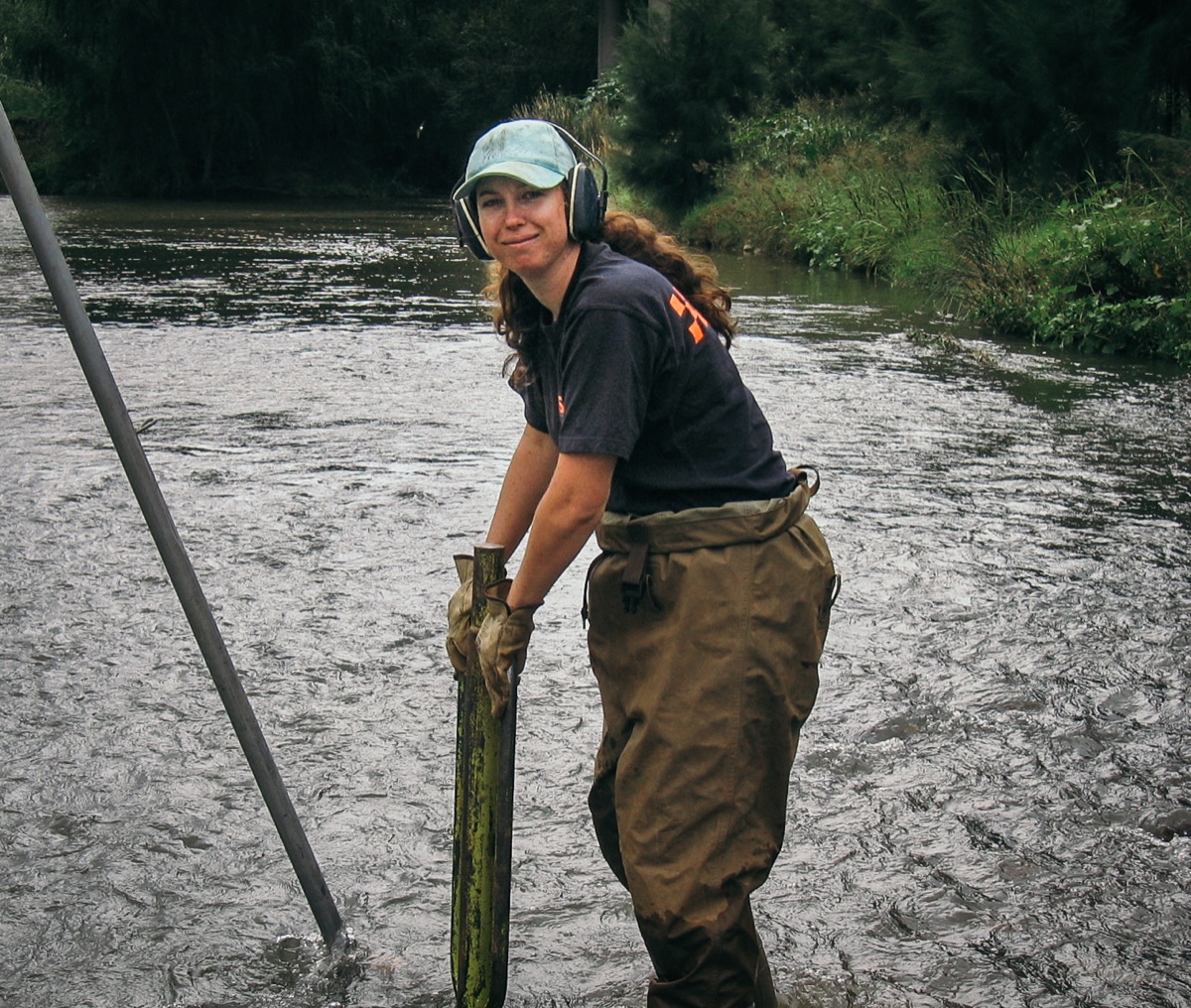Initially motivated by the desire to be outdoors, UNE ecologist Dr Sarah Mika has become an accidental activist for the preservation of Australia’s beautiful river ecosystems.
“Accidental”, because a career in freshwater ecology only presented itself relatively late in her studies.
“Activist” not in the popular sense of waving placards and shouting slogans, but advocating for the use of scientific rigour when working with communities and governments to preserve the ecological integrity of rivers.
“I don’t want to spend my career documenting the decline of systems that I care about,” Sarah says.
She loves all rivers, and the coastal rivers of northern NSW in particular. “These are beautiful and special environments that are under increasing pressure from human activity — but there is so much left to fight for.”
She is working on behalf of these rivers, and any other waterways in need, through UNE’s Aquatic Ecology Restoration and Research Group (AERRG), Sarah’s academic home for the past six years.
AERRG exists to apply research in ways that make a difference.
It has developed a unique “report card” system in which AERRG scientists, after assessing river health from many perspectives, present councils and government agencies with a short, easily-read analysis of river health and recommendations on how to improve it.
The report card can then be used by councils as a tool to justify investment in river health with ratepayers.
In other instances, the Group provides clarity around decisions.
When the Port Macquarie-Hasting Council began considering a project to convert about 600 septic tanks across three upland communities to reticulated sewerage systems, AERRG guided council on the level of investment it would need to treat sewage to an acceptable level for returning to the catchment’s rivers.
Where required, members of the AERRG also attend town hall meetings to discuss river health and restoration, taking their expertise straight to the community.
“We’ll never win a Nobel Prize for our research, but we’re making a difference where it matters — in the rivers.”
Sarah’s path to freshwater ecology was as meandering as a floodplain watercourse.
Growing up in the Brisbane outskirts, in former dairy farm country, she was drawn to the outdoors and, at school, to subjects lumped under the general heading of “geography”.
When investigating courses at the University of Queensland, a lecturer suggested that her interest in natural resources would be best catered for at the University of New England. And so began her first engagement with UNE: a bachelor degree in Natural Resources. She started with a focus on geography and planning, but finished committed to ecology.
Studying externally (and thus earning one of the first fully external NatRes degrees), Sarah supported herself by working three jobs: in a hospital x-ray ward, installing security systems (“I hated going into roofs”) and as an office temp.
Matriculation left her exhausted, and still unclear as to the specific area of natural resources she wanted to work in. “I volunteered for everything, and ruled out a lot of possibilities.”
Then she volunteered to help UNE Professor Andrew Bolton scope a research project on the Bellinger and Never Never rivers. Somewhere along the Never Never, she had an epiphany: she wanted to work on behalf of rivers.
“I’d been exhausted before I went on that trip, but by the end of it I was asking Andrew whether I could do my Honours project with him.”
She did the Honours, on the role invertebrates play in estuarine foodwebs, and her doctorate followed, on restoring the connections between surface and groundwater to improve river function. By the time she had her doctorate, and a position with AERRG, Sarah also had an identity: freshwater ecologist.
Science means days, weeks, sometimes months in the lab and office, crunching data and producing papers. On the other hand, it also means exploring rivers and estuaries, and taking lunch against a backdrop of seldom-visited waterfalls.
Through her work with AERRG, Sarah has learned that science alone can’t save rivers from the pressures of development and climate change. “There is an incredibly complex interplay between humans and the natural environment, and you can’t view it all from just one perspective. Science has to work with the community and government to be effective.”
Her work, and the community response to it, encourages her, even as she worries about the enormous pressures on the natural world.
“We can save what’s left. We know what we need to do. We just need to do it together.”


